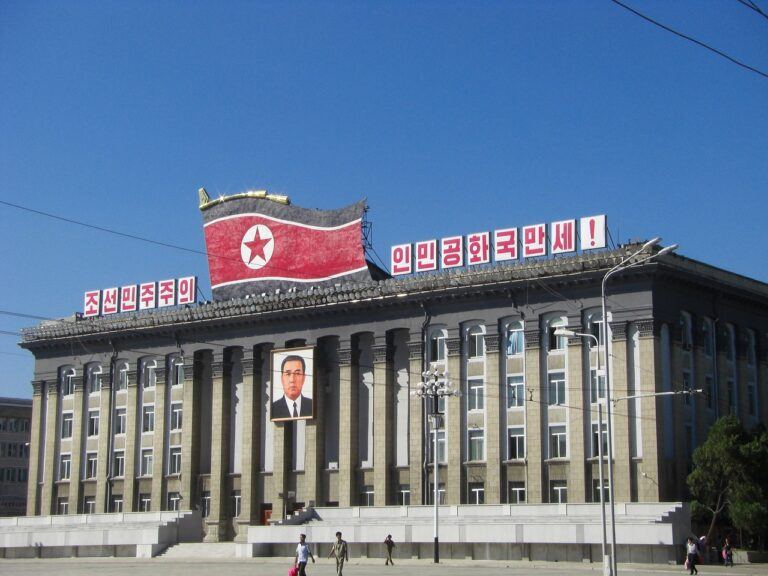North Korea is “increasingly” using cryptocurrencies to bypass US-led economic sanctions, according to two Washington-based financial intelligence experts. Lourdes C. Miranda, the managing partner at MirandaFinIntel Consulting, told the Asia Times that North Korea is “both trading established cryptocurrencies and also creating its own.”
Working closely with Miranda, Ross Delston, a certified anti-money laundering specialist (CAMS), said in a written statement sent to Asia Times that “international criminals … prefer cryptocurrencies and the Democratic People’s Republic of Korea (DPRK) is no different.”
“Mixing”, “Shifting” Using Multiple Exchangers
The joint written response from Delston and Miranda added that digital currencies have made it easier to circumvent internationally imposed sanctions as North Korea is able to use “multiple international exchangers, mixing and shifting services … mirroring the money laundering cycle … to exploit international financial institutions that have correspondent banking relationships with the United States.”
They continued:
DPRK [has the capability of] creating [its] own cryptocurrencies or using established ones like Bitcoin. Having their own cryptocurrency would also facilitate their ability to open online accounts under the guise of a non-adversarial nation using anonymous communication to conceal the user’s locations and usage on the internet.
When questioned about whether it would be possible for North Korea to manipulate transactions using its own cryptocurrency, the cybersecurity analysts said the hermit state could do so by changing recipient or sender information to make it seem that they are reputable sources.
Moving Crypto Between Numerous Hot Wallets
Commenting further on how the DPRK could bypass economic and trade restrictions, Miranda and Delston explained that the country could create its own crypto wallets and transfer digital currencies between these wallets to anywhere in the world.
Because most online cryptocurrency (hot) wallets don’t require Personally Identifiable Information (PII),
[North Korea] could open an online wallet using a Russia-based service, transfer its cryptocurrency into a Bulgaria-based wallet service and then transfer it again into a Greece-based wallet service, all through anonymous communication and using their own blockchain
Having the ability to easily transfer cryptocurrencies could help the rogue state launder money as miners in the DPRK could send digital currencies to their partners with legitimate PII in Europe (or elsewhere), Delston and Miranda said.
The intelligence experts further noted that these partners could then begin laundering money by “mixing, shifting and exchanging cryptocurrency into US financial institutions.” Going on to explain what a “mixer” does, the security researchers said that:
mixing is sending cryptocurrency and receiving the same cryptocurrency type back. It is equivalent to requesting change for a $100 and receiving different denominations in return totaling a $100.
“Obscuring The Source Of Funds”
The pair explained that “once DPRK [has] split its Bitcoin using multiple international mixing services,” it could then begin using “shifting services” which allow for the conversion of Bitcoin into other major cryptocurrencies such as Ethereum (ETH) and Litecoin (LTC).
Delston and Miranda claim that this process will help to “obscure the source of funds” as it will “break the linear pattern of transactions” on a blockchain network. After successfully “mixing” and “shifting”, the security analysts explain that the cryptocurrencies would then have to be converted to fiat money through exchanges that facilitate it.
It appears that the DPRK has already begun similar money transfer and conversion processes as Priscilla Moriuchi, a former US National Security Agency official, told Vox in February that North Korea might currently be making $200 million “by creating and selling cryptocurrencies and then turning it into hard cash.”









